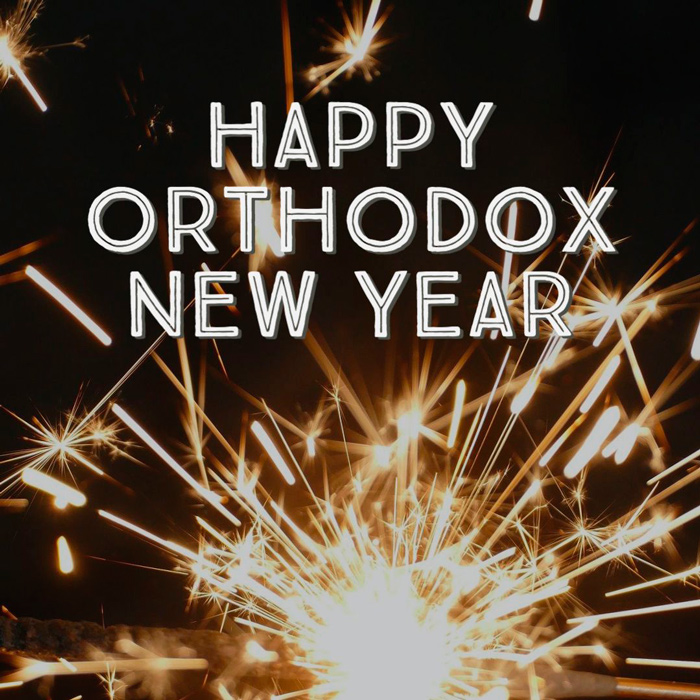Esperanto Day
What day is it?
Esperanto — an artificially created international language, on which great hopes were placed at the end of the 19th and the beginning of the 20th centuries. Having an interesting history of origin and development, it was supposed to stop the enmity between different nations and unite the peaceful world into a single entity. Unfortunately, at that time Esperanto could only become a hobby of intellectuals and idealists. However, over the years, the language has not disappeared or been forgotten, and now, in the digital world, it is experiencing a new revival. In order to popularize the international language in the world, a special holiday was created — Esperanto Day, which is celebrated every year on July 26. It was on this day in 1887 that the first Esperanto textbook was published.
How did the idea of celebrating Esperanto Day come about?
The future author of Esperanto, Ludwik Lazar Zamenhof, was born on December 15, 1859 in the Polish city of Bialystok, which at that time was part of the Russian Empire. The boy’s father, Markus Zamenhof, taught German and French at a local school. The son inherited from his father the ability to learn languages - from an early age he knew Russian and Yiddish, which were spoken in the family, in addition, he learned German and Polish.
The population of Bialystok was multinational and consisted of Germans, Jews, Poles, Lithuanians, Belarusians and Russians. There were no friendly relations between different communities, so Ludwik often witnessed ethnic conflicts as a child. It seemed to the boy that people were fighting because of the fact that they speak different languages, so he had a dream to create a single language for all mankind.
In 1873, the Zamenhof family moved to Warsaw, where international relations were no better. In particular, anti-Semitic sentiments caused Ludwig a lot of suffering. While studying at the Warsaw Grammar School, Zamenhof became interested in Latin and Ancient Greek and first wanted to adapt one of them for use in real life. But in the end, he decided that it was better to create a new language, not tied historically and culturally to any nation.
Our language is universal
Zamengoff wanted to make the artificial language simple, so he limited the set of grammatical rules to a minimum. As for the vocabulary, the words of the Romance and Germanic languages were chosen as the basis. In addition, the dictionary included a significant number of words that were already widely used as international. In 1878 Zamenhof graduated from the gymnasium and practically completed the work on the language, which he called “Lingwe uniwersala”.
At the same time, Ludwik’s father considered his son’s linguistic interest to be unpromising, so he insisted that he acquire a traditional medical profession, which is why the young man entered the medical faculty of Moscow University in 1879. Two years later, he returned home and continued his studies at the University of Warsaw. But it turned out that during his son’s absence, his father burned all his records related to “Lingwe uniwersala” so that Ludwik could concentrate on medicine and leave work on an international language.
International language
Trying to remember all the details of the destroyed records and restore them, Zamengoff came to the conclusion that the first version of the artificial language had many shortcomings, so he again delved into the process of its improvement. Gradually, the language came to life and acquired its own character, and in 1884, in the last year of study at the university, Zamenhof completed his project, which was called “Lingvo internacia”.
Doctor Esperanto
After starting his practice as an ophthalmologist, Ludwik Zamenhof began to look for a publisher for his international language textbook. The search lasted for two years and finally in 1887 the book was first published in Russian, and a few months later in French, German and Polish. However, Zamenhof, for fear of losing patients, did not dare to put his real name on the cover, so he chose the pseudonym “Doctor Esperanto”, that is, “The One Who Hopes”. Soon the language itself began to be called the apt word “Esperanto”.
With the release of the manuals, Zamenhof’s work immediately found its supporters, the author began to receive letters with questions, advice and grateful feedback. In 1888, he published the “Second Book of the International Language” – “Dua Libro de l’Lingvo Internacia”, already entirely in Esperanto, and on September 1, 1889, the periodical “La Esperantisto” began to be published in Nuremberg. In the cities of Europe and North America, Esperanto lovers began to unite in groups, starting an international movement.
World Congress of Esperanto
From August 5 to 12, 1905, the first World Congress of Esperanto was held in France, which was attended by 688 delegates from 20 countries. Among them was Zamenhof himself, who addressed the gathering with a speech. Since then, such congresses were held every year until 1914, then they were canceled due to the First World War, and were resumed only in 1920. But the creator of Esperanto did not live to this time – on April 14, 1917 Ludwik Zamenhof died of heart disease.
Decline and revival
Meanwhile, the fate of Esperanto was quite dramatic. It is known that the League of Nations wanted to approve this language as a working language, but the French delegation opposed it. There was even an attempt to create an Esperanto-speaking territory in a small area between the Netherlands, France and Germany, but it did not last long. In the end, Esperanto was used mostly within amateur clubs, but the language was reflected in books, music and films.
Now, to the surprise of many, Esperanto is coming back to life – in recent years, the demand for online courses in this language has increased significantly. Of course, this is primarily facilitated by the Internet — its users want a universal means of communication.
Esperanto day in history
-
1887
July 26Ludwik Zamenhof published the first Esperanto textbook in Warsaw under the pseudonym Doctor Esperanto. The date of publication of the book is celebrated as Esperanto Day. -
1905The first World Congress of Esperanto took place in France.
-
1908The World Esperanto Association (UEA) was founded.
-
1954The UNESCO General Conference noted the importance of Esperanto as a factor of international understanding. A consultative relationship has emerged between UNESCO and UEA.
-
2001Wikipedia has articles in Esperanto.
-
2012Esperanto has been added to Google Translate.
Frequent Questions and answers about Esperanto Day
In fact, Esperanto is a mixture of Indo-European languages. About ¾ of the words are taken from Italian, French, Spanish, Portuguese and Romanian, most of the rest from English and German. Phonology is built on the principles of Slavic pronunciation, and the alphabet consists of 28 Latin letters.
Among the advantages of Esperanto are simple pronunciation, a minimum of grammatical rules, as well as ease of learning for Europeans and English-speaking people. A disadvantage of Esperanto is that it is difficult for people from Asia and Africa to learn, because the grammar and words are almost entirely based on European languages.
The writer Leo Tolstoy was a great admirer of the convenience and simplicity of Esperanto. Instead, Adolf Hitler acted as an ardent enemy of this language because of Zamenhof’s Jewish origin. Joseph Stalin was a supporter of Esperanto at first, but later called it “the language of spies.” The popularizer of Esperanto for a certain period was George Soros. Because of Mao Zedong’s love for Esperanto, a magazine and radio broadcasts in this language have been published in China since 1950.
Members of this organization are representatives of 120 countries. Although Esperanto is not recognized as an official language in any country, it is spoken by approximately 2 million people on the planet, and one thousand of them are native speakers, that is, they learned it from birth.
Yes, in our country there is a Ukrainian Esperanto Association, which was founded in 1989. Currently, this organization has about 150 people and is a member of the World Esperanto Association. At the same time, 33 Esperantists from Ukraine were individual members of UEA in 2020.
How to celebrate Esperanto Day?
Every year on July 26, conferences of Esperantoists are held around the world, and World Esperanto Congresses are also dedicated to this date. In Ukraine, there are Esperanto clubs in every region, although not in all cities yet. These associations arrange open meetings, music festivals, book exhibitions – of course, everything is related to the subject of Esperanto. Therefore, those who want to join this culture can easily do so by finding out about the time and place of events with the help of the Internet.
Esperanto is considered a simple language recommended for learning as a first foreign language. So why not start getting to know her on Esperanto Day, especially since now there are all the opportunities for this. For example, an accessible Esperanto course has been available on the popular Duolingvo resource since 2014. And in order to better assimilate the acquired knowledge, it is necessary to communicate as much as possible in Esperanto with other lovers of this language, who can be easily found on social networks.
Although feature-length films with dialogue in Esperanto are quite rare, a notable exception is the 1966 American cult film Incubus, which was shot entirely in Esperanto. Therefore, it should be reviewed by those who want to hear the living sound of this language. You can also find numerous samples of songs in Esperanto on the Internet, including Esperanto karaoke sites.
Why is this day important?
Esperanto today cannot be called the most widespread language in the world, so many people know nothing about it except for the name. Therefore, Esperanto Day is designed to fill the gaps in our knowledge about this really interesting and outstanding invention, which may still be waiting for its golden age. Unfortunately, it is still widely believed that Esperanto is inferior to all other languages because of its artificial origin. But in fact, artificiality is a relative concept, and all processes of language development can be considered artificial, for example, in relation to the development of technical or any other terminology.
Esperanto is a politically neutral phenomenon – this language does not belong to any nation, but it can belong to every person. Perhaps, in this aspect, the similarity of Esperanto to the Internet, which also does not belong to specific states, is noticeable. Esperanto helps those who communicate with it to distance themselves from any politics and build relationships purely on a human basis. It is not for nothing that Esperantoists were persecuted by the authorities in totalitarian countries, because they went beyond the generally accepted system, and the Esperanto movement was always inspired by humane ideas of interethnic friendship and universal peace, as well as equal rights for all people.
Last but not least, the Esperanto language is important because it helps to find friends and like-minded people, and in this sense it acts as a joint activity or hobby. In addition, Esperanto is pleasant to speak and listen to, because it resembles the melodious Italian, Portuguese and Spanish languages.
When will we celebrate Esperanto Day??
| Year | Date | Weekday |
|---|---|---|
| 2021 | July 26 | Monday |
| 2022 | July 26 | Tuesday |
| 2023 | July 26 | Wednesday |
| 2024 | July 26 | Friday |
| 2025 | July 26 | Saturday |



































